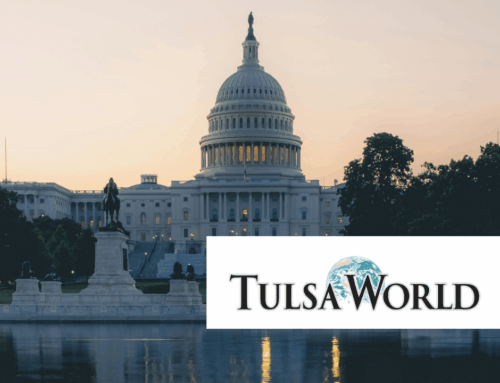On Wednesday, February 1st, the House Committee on Oversight and Accountability held a hearing titled “Federal Pandemic Spending: A Prescription for Waste, Fraud and Abuse.” The hearing addressed estimated and actual accounts of pandemic relief fraud, government agencies’ ongoing efforts to remediate that fraud, and recommendations on how to better prevent future fraud of emergency relief programs.
The first round of hearing witnesses included: David Smith, Assistant Director, United States Secret Service (USSS) Office of Investigations; Michael E. Horowitz, Office of Inspectors General (OIG), U.S. Department of Justice; and Gene L. Dodaro, Comptroller General of the United States, United States Government Accountability Office (GAO). Rebecca Dixon, Executive Director of the National Employment Law Project (NELP), later joined as new witness in at the end of the hearing.
The federal government appropriated a massive amount of funds – $4.6 trillion – in response to the COVID-19 pandemic and subsequent economic crisis. According to the GAO testimony, $4.4 trillion of these funds, 97%, have already been obligated across various programs. The largest of these programs -the Paycheck Protection Program (PPP), Economic Injury Disaster Loan (EIDL) program, and Unemployment Insurance (UI) program- account for almost $2 trillion of the $4.6-trillion aid, according to Michael Horowitz of OIG’s oral testimony.
The extent of fraud associated with these, and other, federal relief programs has not yet been fully determined, but in part due to the size of the response, is likely in the billions. The Office of Inspectors General (OIG) has identified $5.4 billion in potentially fraudulent pandemic loans through EIDL and PPP, and the GAO estimates that UI fraud during the pandemic is at least $4.3 billion.
According to the witnesses, there were many factors that might have contributed to this level of fraudulent activity, including the rush to release funds, lack of coordination between states, and the sheer amount of funding provided. But while this volume of fraud is substantial, it is not unlike the patterns seen with other major relief programs, according to David Smith of USSS. Put simply: “fraudsters will exploit disasters.” As Rep. Clay Higgins (LA-3) said in the hearing, “we knew there would be fraud. Because fraud is always connected to money… But Americans expected the presence of accountability.”
The three witnesses offered a variety of recommendations for Congress and the Administration to improve accountability for COVID-19 relief and future spending. One trend across many of the recommendations was a call for increased transparency. Michael Horowitz of OIG testified that “indeed, transparency drives accountability. To assess whether a program has had its intended impact, you first need to know where the money has gone and how it has been spent.” The call for transparency was also shared at the GAO, where recommendations included allowing quicker reporting of improper payment estimates, requiring IGs to report on the quality of USAspending.gov data, and increasing data sharing between agencies.
We have always believed that government transparency is essential. Not only do taxpayers have a right to know how their tax dollars are being spent, but policymakers need accurate and detailed information to assess how past programs have worked and how they can be improved in the future. Those who do not learn from history are doomed to repeat it. And understanding the ways in which pandemic relief programs succeeded and failed will prepare us for the future. As Michael Horowitz of OIG testified:
“I think the problem at the outset of the pandemic was, as the Comptroller General has mentioned, the lack of preparedness. Now, understanding, this was a 100-year event with the pandemic. But we have emergencies all the time. We have earthquakes, floods, hurricanes, tornadoes, and other disaster relief. It happens regularly –not at the scale, perhaps, as this did– but we don’t take the steps after an event like this, or smaller emergency events, to fix what’s needed. That was the problem.”
The witnesses also recommended other ways to increase the capacity and resources of the federal government to help deal with waste, fraud, and abuse, such as modernizing IT systems and investing in data analytics capabilities for inspectors general. As more information about pandemic relief programs is released, TCS will continue to follow the money and advocate for common sense reforms to ensure your tax dollars are spent wisely.
For more information on the government response to the COVID-19 pandemic, check out our COVID-19 Stimulus Tracker and Analysis










